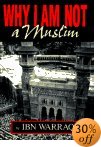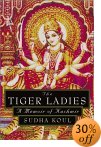|
| Home | About Kashmir Herald | |
Volume 2, No. 7 - December 2002 |
|
| Featured Article |
|
|
|
Terrorism:
What’s in a Name? Sreeram Chaulia William Shakespeare wrote an immortal verse in Romeo and Juliet: “What's in a name? That which we call a rose by any other name would smell as sweet.” The supreme dramatist was weaving his magical web of words around benign subjects like love in the late sixteenth century. I am writing about terrorism in Kashmir in the age of mujahideen armed with Kalashnikovs and rocket-propelled grenades. What’s in a name? Why not call terrorism something else and perhaps it might still convey the stench of the worst imaginable cruelty humankind has ever known? No. Here Shakespeare is not applicable. Here, the name game attains far greater importance than in besotted Romeo’s speeches. Let us consider the politics with names played in General Musharraf’s land for proof. Reporting the latest raid and massacre in Jammu’s Raghunath temple, Pakistan’s leading national daily, Dawn, termed it an attack by “activists fighting for freedom.” Pakistan-based Lashkar-i-Tayyaba, the biggest terrorist outfit in South Asia, was responsible for the attack, and the chief newspaper in its host country referred to its cadre as “activists fighting for freedom.” This happens to be a climb-down from the more regularly bandied “freedom fighters” who are waging a “struggle” to free Muslim Kashmir from ‘Hindu India.’ Since the religious logic comes foremost in the manner in which the Pakistani press forwards the state’s claim to Kashmir, repeatedly vandalising temples and spraying bullets on peaceful worshippers is considered normal freedom struggle without flapping an eyelid. Obviously, Kashmir, whose 500,000 Hindus have already been cleansed, needs to be ‘freed’ from the relics and ancient shrines of these kaffirs too. And in the process, temple-destruction will also foment communal fires and set the whole of India ablaze. What a wonderful ‘freedom struggle’! It achieves but-shikani and also furthers strategic aims. While the whole world has blacklisted Lashkar and its kindred as terrorists, with capital T, the Pakistani establishment, and its muzzled pet, the Pakistani press go on delivering old wine: those who slit throats, gun down babies and riddle temples with bullets are “fighting for freedom.” A few sane voices have risen after intense world scrutiny of Pakistan as the hub of global terrorism. Questioning the blind acceptance of terrorists being presented as revolutionaries, nationalists and freedom fighters, Tashbih Sayyed, commented bitterly: “Now that we have learnt our lessons in Afghanistan, albeit so tragically, we will have to be extra careful before we extend our hand of cooperation to any such "freedom movement." (‘Next Stop-Kashmir’, December 28, 2001, Pakistan Today) But as the earlier citation from Dawn shows, the ‘mainstream’ press in Pakistan is having great trouble calling a spade a spade. And how can it change its nomenclatures summarily like this, anyway? For decades, the middle class Pakistani was programmed into believing that a jihad is being carried out against unbelievers in “Indian-occupied Kashmir”, and that Islamic law and jurisprudence justify the jihad. Editorials have poured out of printing presses for years about the “human rights violations” of “Hindu forces” and their deliberate destruction of Muslim holy shrines. Charar-i-Sharif, which was gutted in 1995 by terrorists and falsely imputed to the Indian army, for instance, is claimed by Pakistan as Islamic, although it is the mausoleum of a Sufi saint who treated all religions as one. The role of the Urdu language press in promoting a reservoir of hatred and religious bigotry about Kashmir is even more vitriolic and open. Just imagine how the Raghunath temple terrorists must have been described in Nawa-i-Waqt, Ausaf and Al Binoria! “Holy warriors”? “Soldiers of God”? An excellent specimen of the programmed middle-class English-speaking Pakistani who swallows the ‘freedom struggle’ nomenclature without question is a so-called feminist and journalist I met in Oxford at the time of the IC-814 airplane hijacking by Pakistani terrorists that got international criminals Masood Azhar, Mushtaq Zargar and Omar Saeed released. I was sharply criticising the Taliban for hosting a hijacked plane in Kandahar and then offering safe passage for the released terrorists back into Pakistani territory. My acquaintance’s feminism unravelled in one second: “Don’t say a word about the Taliban. They have done nothing wrong.” I was taken aback. Here was a Dawn reader for sure, posing as a women’s rights activist, and defending an act of international terrorism so brazenly! I remonstrated that plane hijacking is an indefensible act of terrorism, but she seemed annoyed that I could dare attempt to disturb her nomenclature and cluttered-up brain. The Indian media must also bear some of the blame for giving many Pakistanis hope that those individuals their papers call ‘freedom fighters’ are indeed great heroes. Any curious Pakistani can go to the websites of India’s dozen or so national papers and read that terrorists are only occasionally called ‘terrorists’ in Times of India, The Hindu and Indian Express. Sometimes, the genocidaires of Chattisinghpora are called ‘militants’ and sometimes the assailants of the Parliament of India are called ‘Kashmiri armed men.’ Even when identities of terrorists are clearly established as Pakistani, hailing from such and such district of the Punjab or NWFP or trained in Al Qaeda camps, Indian news media vacillate about using the word terrorist. Some go to the foolish extent of calling them terrorist with quotes on, i.e. “terrorists”, or worse still, “suspected terrorists.” When thirty armed jihadis have erased a whole family of bakerwals, the Indian press is still trying to indicate that it has “suspicions” that the murderers were terrorists! Weak and misleading language in big Indian news dailies is not a new development. In the 1980s, they accepted the LTTE as “freedom fighters” waging a struggle against Sinhalese chauvinism in Sri Lanka. Once Rajiv Gandhi was assassinated by these same Eelam ‘liberators’ and once India realised its mad folly of actively supporting an outright violent and terrorist organisation like Prabhakaran’s, the media had to do a U-turn and learn that the word ‘terrorist’ is more appropriate for an organisation that not only suicide bombed and assassinated former Presidents and Prime Ministers, but also threatened law and order in the state of Tamil Nadu. India has relatively far greater freedoms of speech and press than Pakistan and it is only a matter of public pressure and readers pointing out these lapses in nomenclature for some positive change to come about. The Tribune, published from Chandigarh, has already taken a bold lead by unerringly calling terrorists by no other name but terrorists. My commentary on the usage of names in describing terrorism that has ravaged Kashmir clearly indicates that wrong labelling of villainous terrorists serves the interests of the Pakistani military and intelligence and other enemies of peace. It builds up a powerful constituency in the Pakistani population which internalises the lies that Jaish-i-Muhammad and Harkat-ul-Mujahideen are actually virtuous sacrificial crusaders who cannot bear the oppression of Kashmiri Muslims. And when the world calls for an immediate cessation of cross-border terrorism and infiltration into Jammu and Kashmir, the same constituency reacts that India has succeeded in its nonsensical ‘Pakistan-bashing’ by poisoning Europeans and Americans. This is a very common accusation levelled against veteran American journalists like Selig Harrison. Slippery nomenclature, rammed into minds day in and out, serves to broaden popularity of hideous religious fanatics so much that when a neutral outsider condemns them, he or she can be instantly dismissed as an ‘Indian agent’ or ‘Zionist.’ Daniel Pearl paid the price for honesty about terrorism with his head. After September 11 and the ‘Pakistanisation’ of Al Qaeda, there have been calls worldwide for a plan to ‘de-jihadise’ Pakistan. The replacement of religious madrassas with modern scientific and tolerant schools is considered the main technique for de-jihadisation. But what about already educated Pakistanis who read Dawn and the Urdu magazines? How does one de-jihadise them and their received language? How can the correct names for terrorists be taught to mute adults who have obediently lapped up ‘freedom struggle’ sophistry all their lives? An old saw goes that one man’s terrorist is another’s freedom fighter. Unless one is naïve, it is easy to see that if terrorism is properly defined as intentional and systematic intimidation and killing of civilians, then the genuine terrorist would remain no man’s freedom fighter. The world needs to move to a point where Nelson Mandela is no man's ‘terrorist’ and Osama bin Laden is no man's 'freedom fighter.' The battle for de-jihadising educated Pakistanis is therefore one of surmounting the censorship that screens out objective definition and information about the not-so-gentle indiscretions of ‘freedom fighters.’ [Sreeram Chaulia is Columnist for Asia Times, Hong Kong.] |
 |
 |
 |
|
|
Archives
| Privacy Policy |
Copyrights
|
Contact
Us | |
||